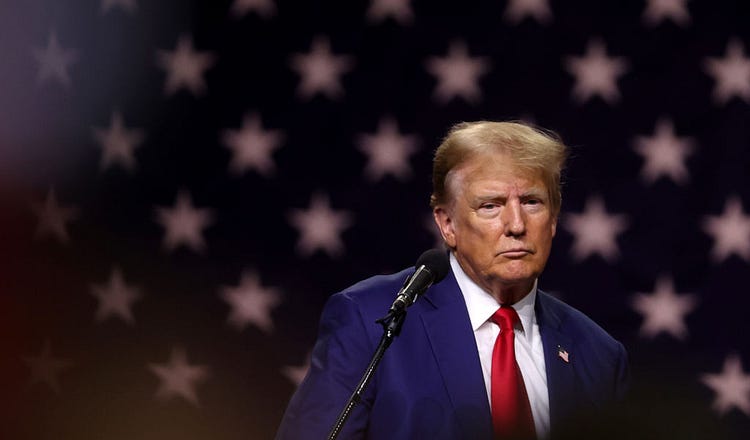Colorado Undermines Democracy in the Name of Democracy

Donald Trump at a rally in Reno, Nevada. (Photo by Justin Sullivan/Getty Images)
I was one of ten House Republicans who voted to impeach Trump after January 6. I think the court’s decision is shameful. Peter Meijer writes.
1,111
For years, we’ve been told that Donald Trump is a worse-than-Hitler threat to democracy and that those who opposed him—leading Democrats, the courts, Noam Chomsky, Michael Avenatti, Rachel Maddow, the hosts of The View, even old Twitter—were just trying to protect it. It’s odd then to now be told that the best way to save democracy is by banning Trump f…
Continue Reading The Free Press
To support our journalism, and unlock all of our investigative stories and provocative commentary about the world as it actually is, subscribe below.
$8.33/month
Billed as $100 yearly
$10/month
Billed as $10 monthly
Already have an account?
Sign In


